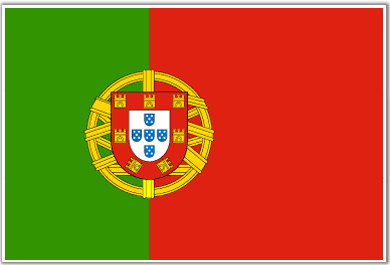Portugal Day is the national day of the southwestern European nation. The day is celebrated on June 10th every year and commemorates the death of national literary icon Luis de Camoes who died in 1580.
Portugal Day Celebrations
The awards and recognitions bestowed on various achievers form the crux of Portugal Day celebrations. The President also inspects the troops and praises their contribution to national issues. Military parades, orchestras, and fireworks mark the celebrations.
On this day people remember their roots by indulging in various patriotic activities such as reading Os Lusiadas, the national epic poem of Portugal, and listening to Portuguese music. Open-air parties and get-togethers are also organized. In case nothing special is happening, people spend the day eating, singing, drinking, and taking part in fun sports.
The event is also celebrated by the Portuguese diaspora in other nations. It is celebrated with great pomp in Toronto, Canada, where the indigenous Portuguese organize a number of events. The festivities last for a week and end with the Portugal Day Parades at Dundas Street, Little Portugal. The Parades normally conclude close to Trinity Bellwoods Park where concerts and various other cultural events take place. The Portugal Day Parade is among the top three street festivals in Toronto.
The Portuguese diaspora in the US and the UK also celebrate the day in a grand manner. Weeklong meetings are held along with art exhibitions, special breakfasts, folk festivals, sports tournaments, and similar events.
Portugal Day History
Portugal Day marks the death of Luis de Camoes. Camoes had written Os Lusiadas, which is the national epic poem that celebrates the achievements and history of Portugal.
At the time of Camoess death, Philip II of Spain, who was known as Philip I of Portugal, was the ruler of the country. Philip, I had claimed the throne as the last two kings of Portugal had died without heirs. Three generations of Spanish monarchs ruled the country but on December 1, 1640, Portugal achieved its independence after an uprising against the Spanish king. John IV of Portugal became the new ruler of Portugal.
Since then Spanish kings tried several times to reclaim Portugal but failed. Camoes have become a symbol of Portuguese nationalism and as his date of birth remains unknown, the day of his death is celebrated as the national day of the country.
During the dictatorial regime of Estado Novo, Camoes were referred to as the symbol of the Portuguese nation. In 1944, at the National Stadium dedication ceremony, June 10 was referred to as Dia de Raca, or Day of the Portuguese Race by Antonio de Oliveira Salazar.
The celebrations were suspended officially when the Carnation Revolution took place in 1974. After 1974 the celebrations began to include Portuguese people living all across the world.
Challenges facing Portugal
The dispute between Portugal and Spain regarding the territory named Olivenza is a major issue. This situation is a result of the misinterpretation of the 1801 Treaty of Badajoz and the 1815 Vienna Congress. Drugs have also been a major problem for this European country.
In recent times, the Portuguese government confiscated record amounts of Latin American cocaine headed for Europe. It has been a European getaway for heroin from southwest Asia and a transshipment point for North African hashish, which is sent to Europe. Southwest Asian heroin is also consumed in Portugal.
Facts about the country
-
- In 1999, Portugal handed over its last overseas territory, Macau to the Chinese administration.
- In January 2002, Portugal adopted the Euro, which replaced the Escudo.
- In August 2003, forest fires engulfed a large area of woodlands, forcing the government to declare a national calamity. 18 deaths were reported and the damage was estimated at one billion euros.
- In July 2007, Portugal took over the EU presidency.
- In October 2010, Portugal won a non-permanent seat on UN Security Council. The two-year term began on January 1, 2011.
- In April 2011, Portugal applied for EU financial assistance to help it overcome its budget deficit, thus making it the third European country after Greece and Ireland to do so.
- In August 2014, to avoid a possible economic collapse, the government bailed out Portugal’s largest private bank – Banco Espirito Santo – to the tune of 3.9bn euros.
- In January 2015, the government of Portugal approved rules, which allowed descendants of Jews, who were expelled many centuries ago from the country, to claim Portuguese citizenship.
Trivia on Portugal
- Over 240 million people speak Portuguese and it is the official language of 9 countries.
- Paris has the largest Portuguese community outside of Portugal.
- Portugal produces about half the world’s output of commercial cork.
- As per the Guinness Book of World Records, Lisbon-based S.L. Benfica is the most widely supported football club.
- Portugal was among the first countries to abolish capital punishment in 1867.
- Portugal is the 16th most peaceful country in the world, according to the World Peace Index 2013.
- The Vasco da Gama Bridge in Lisbon is the longest bridge in Europe. It is 10.m miles (17 km) long.
- Bertrand Bookstore in Lisbon, dating back to 1732, is the oldest bookstore in the world.
